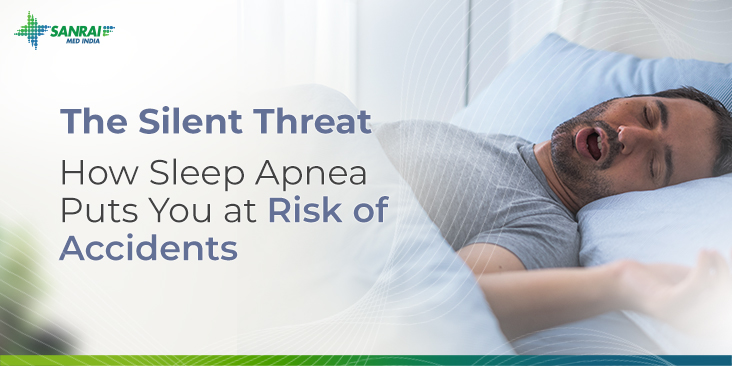Do you suffer from sleep apnea? If so, you may not be aware of the potential impact it can have on your blood pressure levels. In this article, we will explore the relationship between sleep apnea and blood pressure, and how managing sleep apnea can help to maintain healthy blood pressure.
Understanding Sleep Apnea
Sleep apnea is a common and serious sleep disorder that causes interruptions in breathing during sleep. These interruptions, known as apneas, can occur multiple times throughout the night, leading to fragmented and poor-quality sleep. There are three types of sleep apnea: obstructive sleep apnea, central sleep apnea, and complex sleep apnea syndrome.
The Link To Blood Pressure
Research has shown a definitive connection between sleep apnea and high blood pressure. During apnea episodes, the body’s oxygen levels drop, and the stress hormone adrenaline is released, causing blood pressure to spike. Over time, this repeated cycle of oxygen deprivation and increased blood pressure can lead to hypertension, increasing the risk of heart disease and stroke.

Credit: emedmultispecialtygroup.com

Credit: sanraimed.com
Evidence from Studies
A number of studies have demonstrated the impact of sleep apnea on blood pressure. In a study published in the American Journal of Respiratory and Critical Care Medicine, researchers found that individuals with severe sleep apnea were more likely to have resistant hypertension, a form of high blood pressure that does not respond well to treatment. Another study in the European Respiratory Journal highlighted that treating sleep apnea with continuous positive airway pressure (CPAP) therapy resulted in significant reductions in blood pressure.
Addressing The Issue
Given the strong association between sleep apnea and blood pressure, it is essential for individuals with sleep apnea to address the issue effectively. This involves seeking a proper diagnosis through a sleep study and working with healthcare professionals to develop a tailored treatment plan. The most common and effective treatment for obstructive sleep apnea is CPAP therapy, which helps to keep the airway open during sleep, preventing apneas and supporting healthy breathing patterns.
Healthy Lifestyle Habits
Managing blood pressure is not solely reliant on treating sleep apnea; it also involves adopting lifestyle habits that promote cardiovascular health. This includes maintaining a balanced diet low in sodium and saturated fats, engaging in regular physical activity, managing stress, and avoiding tobacco and excessive alcohol consumption. These habits can complement the treatment of sleep apnea and contribute to overall blood pressure management.
Conclusion
In conclusion, sleep apnea can significantly impact blood pressure, and individuals with sleep apnea are at a higher risk of developing high blood pressure and its associated complications. By addressing sleep apnea and implementing healthy lifestyle habits, it is possible to mitigate the effects of sleep apnea on blood pressure and reduce the risk of cardiovascular disease. If you suspect you may have sleep apnea, seeking professional evaluation and treatment is crucial for your overall health and well-being.
Frequently Asked Questions Of How Sleep Apnea Affects Blood Pressure: Unveiling The Hidden Connection
How Does Sleep Apnea Affect Blood Pressure?
Sleep apnea can lead to high blood pressure due to the intermittent pauses in breathing during sleep, which disrupts oxygen flow and increases stress on the cardiovascular system.
Can Sleep Apnea Cause Hypertension?
Yes, sleep apnea can contribute to the development of hypertension, as the repeated decrease in oxygen levels during sleep can lead to sustained elevation in blood pressure levels.
What Are The Long-term Effects Of Untreated Sleep Apnea On Blood Pressure?
Untreated sleep apnea can lead to chronic high blood pressure, which increases the risk of heart disease, stroke, and other cardiovascular complications over time.
Is There A Connection Between Sleep Apnea And Hypertension?
Yes, there is a strong connection between sleep apnea and hypertension, as sleep apnea can contribute to the development and worsening of high blood pressure.
Leave a Reply